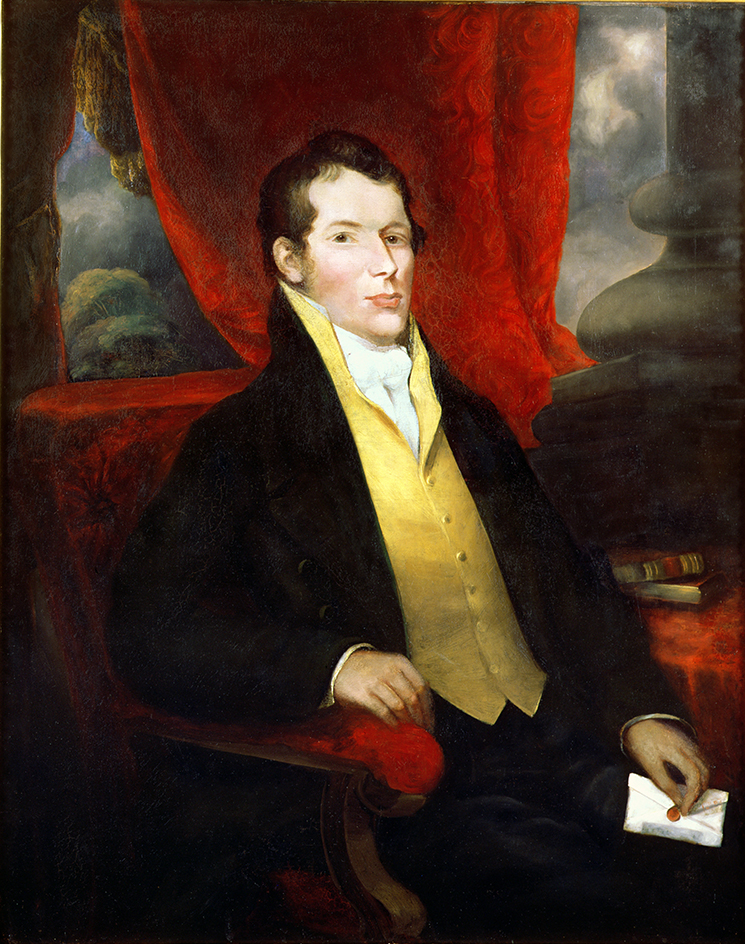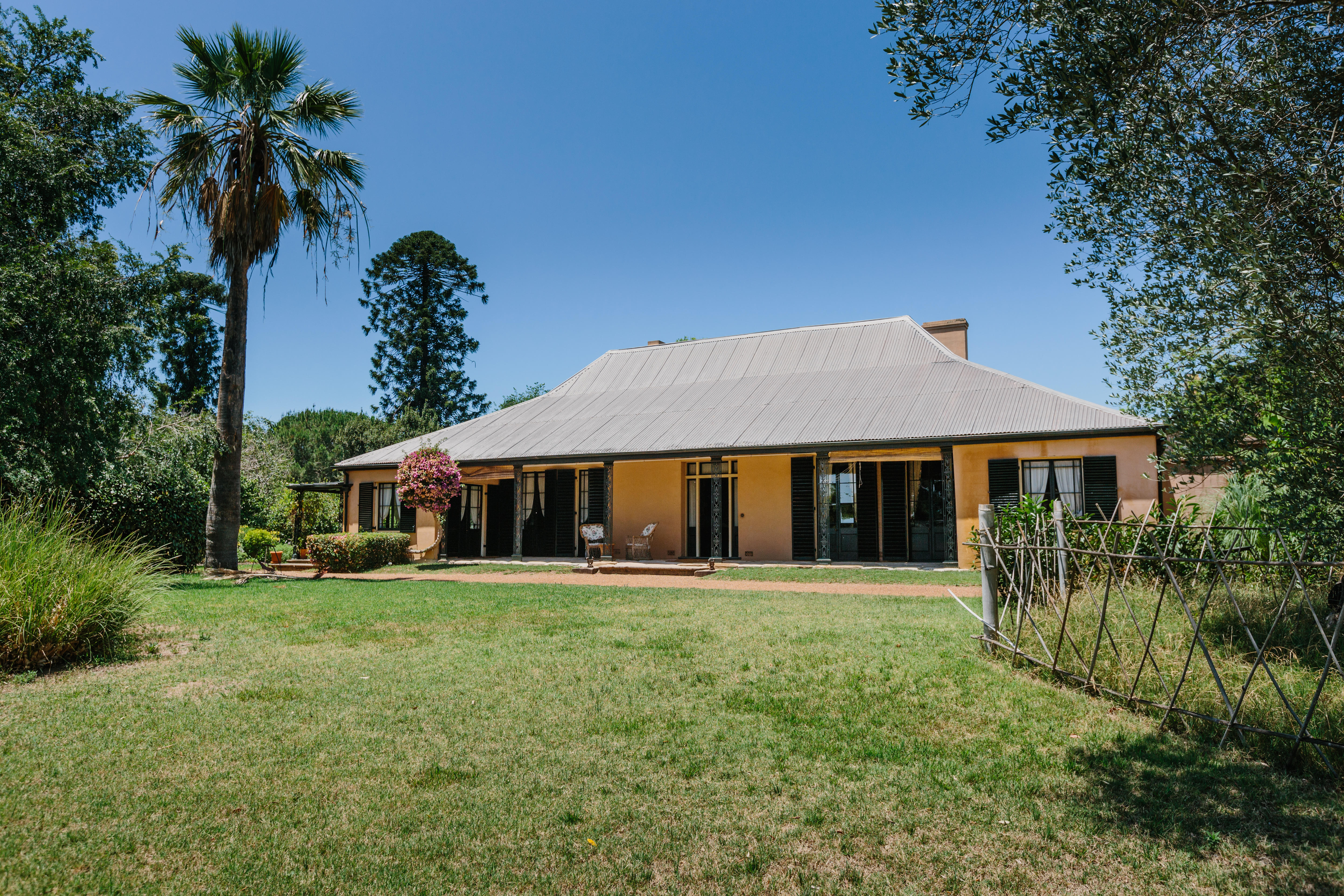Macarthur, John (1767-1834), was a British-born soldier and businessman who helped lay the foundations for Australia’s wool industry. He arrived in New South Wales as a British Army officer in 1790. At that time, New South Wales was a prison colony. Using convict labor, Macarthur established a large farm where he raised valuable Spanish Merino sheep. Spanish Merinos are prized for the high quality of their wool. Macarthur was an intelligent businessman, but his arrogance made him many enemies.

Early life.
Macarthur was born in 1767, in Stoke Damerel, near Plymouth, in England. In 1782, he joined the Army as an ensign. He transferred to the New South Wales Corps as a lieutenant in 1789, and sailed for Sydney with his wife, Elizabeth, and infant son, Edward.
Building commerce.
In 1792, Macarthur became paymaster of his regiment, and in 1793, he was appointed inspector of public works. In 1793, he established a farm at Parramatta on 100 acres (40 hectares) of land and named it Elizabeth Farm, after his wife. The farm flourished. Macarthur was the first settler to clear and cultivate 50 acres (20 hectares) of bushland. The government rewarded him with a gift of another 100 acres (40 hectares), and Macarthur soon became one of the biggest landholders in New South Wales. He acquired several Spanish Merino sheep from Henry Waterhouse, a British naval officer who brought the first flock of Merinos to Australia in 1797. 
In 1801, Macarthur wounded his commanding officer in an illegal duel. Colonial Governor Philip Gidley King sent Macarthur to England for trial before a military court. The trial never took place. Instead, Macarthur used the opportunity to publicize his wool-growing activities in New South Wales.
Macarthur obtained permission from the British government to resign from the Army and to return to New South Wales to develop the wool industry. The government recommended that Macarthur receive a grant of 5,000 acres (2,000 hectares) of the best land in the colony. Macarthur also obtained some rare Spanish Merino sheep from King George III’s flocks. Governor King reluctantly obeyed the British government’s instructions. Macarthur prospered and soon had 8,650 acres (3,500 hectares) of the best land on an estate named Camden Park.
Disrupting politics.
In politics, Macarthur became known as the perturbator (disturber), because of his continuous quarrels with almost every official with whom he dealt.
One of Macarthur’s most notable public quarrels came shortly after he returned to Australia in 1805. He became involved in a bitter dispute with Governor William Bligh, King’s successor. Bligh was as headstrong and stubborn as Macarthur. Their fierce quarrels came to a head when Bligh ordered Macarthur’s arrest over a dispute about a ship. In 1808, Bligh refused him the bail granted him by a court. Major George Johnston, commander of the New South Wales Corps, ordered Bligh to release Macarthur. When Bligh refused, Johnston arrested Bligh and proclaimed himself lieutenant governor. Johnston then appointed Macarthur colonial secretary, and Macarthur administered most of the colony’s affairs for several months. Macarthur sailed for England in 1809 to support Johnston, who faced a court martial for his actions.
Bligh’s successor as governor of New South Wales, Lachlan Macquarie, was ordered to arrest Macarthur when he returned to Australia. From 1810 to 1817, Macarthur lived in virtual exile in England. He was afraid that he would be tried for treason if he returned to New South Wales. During this time, his wife and his nephew Hannibal looked after the Camden Park estate and Macarthur’s valuable Merino flocks. Macarthur sent them detailed instructions from England. In 1813, Australia’s first commercial wool shipment, grown at Elizabeth Farm, was sold in England.
Eventually, Governor Macquarie allowed Macarthur to return to New South Wales in 1817 on the condition that he stay out of politics and public affairs. But Macarthur quarreled with Macquarie when the governor refused to grant him more land. Macarthur used all his influence in London to attack Macquarie’s reputation. By 1819, Macarthur owned flocks of more than 6,000 sheep, including more than 300 pure Merinos. His wool was of the finest quality and sold for an extremely high price in London. Although his often violent temper continued to cause him difficulties, Macarthur’s business flourished. He continued to add land to his estate, and by 1830, he owned more than 62,000 acres (25,000 hectares) at Camden Park.
In 1825, the colonial government of New South Wales established its legislature, the Legislative Council. Macarthur was named as an unofficial member of the council, which brought him into further conflict with colonial authorities. The council was reformed in 1829, and Macarthur served as a member until 1832, when Governor Sir Richard Bourke asked that he be removed on the grounds of insanity. Macarthur died on April 11, 1834.
See also Australia, History of (The wool industry and spread of the squatters.); Rum Rebellion.
